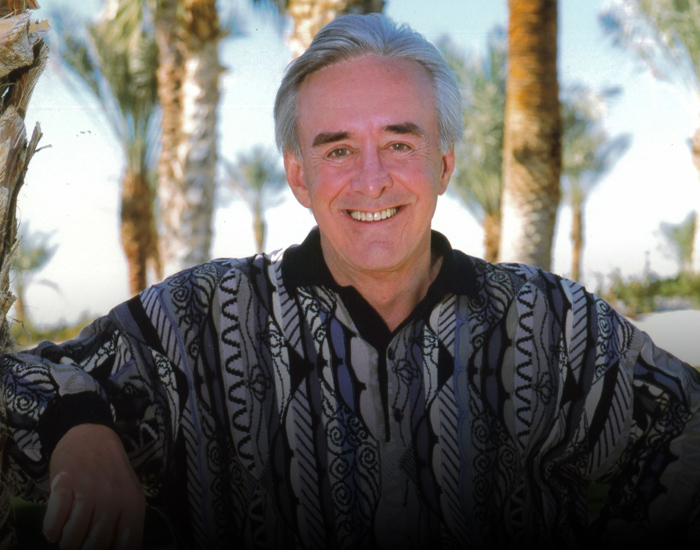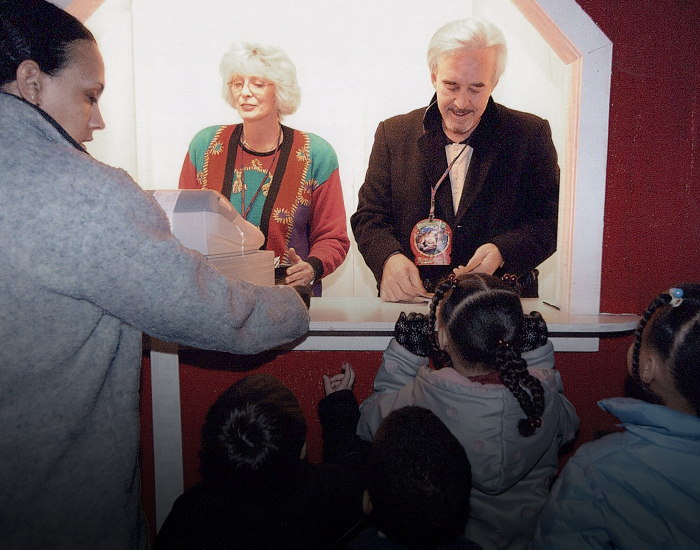Insider Trading and FBI Misconduct
Insider Trading Case
In 2017, Billy Walters was convicted of insider trading charges in a case marked by egregious government misconduct.
In October 2020, Walters filed a lawsuit in federal court in New York accusing five senior federal law enforcement officials–including Preet Bharara, the former U.S. Attorney for the Southern District of New York, Daniel Goldman, the former Assistant U.S. Attorney and David Chaves, the former Supervisory Special Agent who oversaw all white-collar crime investigations–of covering up and lying to the federal court about illegal leaks of false information to The New York Times and The Wall Street Journal.
Walters denies that he traded stocks based on inside information. He has appealed his case to the U.S. Supreme Court. You can read the petition here.
Walters was accused of receiving inside information from Tom Davis, the former chairman of Dean Foods. Davis had met Walters on the golf course and they became friends. Davis repeatedly denied providing any inside information to Walters. But Davis, who admitted that he had a gambling problem and consorted regularly with prostitutes, embezzled money from a women’s charity he headed. He very quickly became the target of a federal investigation.
Davis hired an attorney who, until a few months prior, worked as a federal prosecutor and had been a member of Southern District’s Securities and Commodities Fraud Task Force for eight years – the same group investigating Walters. After 29 meetings with federal agents, Davis changed his story and testified that he had shared information about Dean Foods with Walters. He claimed some of their communications were on a cell phone that he threw into a small creek. Government divers were never able to locate the phone and Walters’ attorneys said such a phone never existed.
Interestingly, in the ten years Walters owned Dean Foods shares, he made 65 trades and never once shorted the stock. He also owned shares in another company on whose board Davis served, Affirmative Insurance Holdings. He held those shares until the company filed for bankruptcy protection and they became worthless.
Walters currently is serving a five-year sentence. On May 1, 2020 he was transferred from federal prison in North Florida to home confinement amid the coronavirus pandemic. He began his sentence on October 10, 2017. He has already served well more than the 366 days recommended by the U.S. Probation Office.
Government misconduct
These stories and the timeline below outline the government misconduct. It’s been more than two years since a federal judge demanded answers and refused a request for an evidentiary hearing that would have further examined FBI misconduct.
Press:
Liberty Watch, “The Government’s Vendetta Against Billy Walters”
We reviewed thousands of pages of public trial documents and transcripts in the Walters saga and one thing became abundantly clear: The United States Attorney’s Office (USAO) had a blood vendetta against the Las Vegas businessman. This vendetta goes back 31 years, when the government first indicted Walters and ended up with egg on its face after he was acquitted. Embarrassed, the government dedicated itself to getting Billy Walters…Continue Reading
National Review, “Problems at the Justice Department and FBI Are Serious”
What do you do with an FBI agent, sworn to uphold the law, who flagrantly violates the law in a rogue investigation aimed at making a name for himself by bringing down some high-profile targets? Why . . . you promote him, of course. At least that is the way the Justice Department answered that question in the case of David Chaves, an FBI agent who serially and lawlessly leaked grand-jury information, wiretap evidence, and other sensitive investigative intelligence to the media in his quest to make an insider-trading case against some celebrities…Continue Reading
World Tribune, “Stock trader’s appeal targets illegal FBI leaks from NY office probing President Trump”
One of America’s most famous sports gamblers, who was convicted in 2017 in an insider trading case, has appealed to the Supreme Court to hear his case, citing damaging illegal FBI leaks to the press that came from the New York bureau office. The FBI office in New York is also heavily involved in investigations of President Donald Trump…Continue Reading
Forbes, “FBI Leaker At Center Of Billy Walters' SCOTUS Case”
William "Billy" Walters, former high profile professional gambler, is scheduled to be released from federal prison on February 14, 2022. He is 72 years old and serving a 5-year prison sentence related to insider trading charges. To give you some background on the case, in 2011, the Securities and Exchange Commission (SEC) and the Federal Bureau of Investigations (FBI) looked into into suspicious trading of Clorox shares…Continue Reading
Timeline of misconduct:
- This case involves undisputed evidence that the U.S. Department of Justice fed information to reporters at the New York Times and the Wall Street Journal with the intent (and effect) of reviving a dead-end investigation involving Billy Walters. The Department also revealed that the U.S. Attorney for the Southern District of New York, the Assistant Director in Charge of the FBI's New York Field Office, and other officials at the highest levels were aware of the leaks in real time but did not do enough to stop them.
- David Chaves, the senior supervisory agent responsible for white-collar investigations in the FBI's New York Field Office admitted to leaking information to reporters in exchange for information the reporters learned through their own investigation.
- The Department of Justice admitted that a senior delegation from the FBI, including the head of all criminal investigations within the New York Field Office, met with Wall Street Journal reporters and agreed to tip them off if they learned that another paper would be running a story on the investigation.
- When the articles came out, everyone, including U.S. Attorney Preet Bharara and the Assistant FBI Director, who reported directly to then Attorney General Eric Holder and then-FBI Director James Comey, immediately understood that there was a leaker (or leakers) in their ranks. Yet none of them did anything aside from issue rote warnings to cease leaking.
- In the absence of any serious corrective action, the leaking continued unabated. For example, when Mr. Walters invoked his right to counsel when approached by the FBI, the leaker(s) planted another story in the New York Times in an apparent attempt to step up the pressure. Similarly, the Department had a wiretap on Mr. Walters' phones at the same time that it was leaking information—a common tactic designed to spur targets to make incriminating statements that can be recorded and used at trial. Walters’ phones were tapped for 60 days; not a single conversation was used as evidence against Walters.
- Notwithstanding the Department's awareness of the illegal leaks, when Mr. Walters raised the leaks in court, the U.S. Attorney's Office issued blanket denials. It was only when the court ordered discovery, and the Department faced imminent disclosure of the ugly facts it had known for years, that the Department admitted to the leaks.
- And even in its mea culpa admission, the Department continued to deny the wider problem and sought to pin blame on a single lone-wolf leaker, FBI agent Chaves. For example, although the Department claimed to have reviewed thousands of emails and conducted more than a dozen interviews, it disclosed only a handful of self-serving emails that showed the Department’s purported outrage as the leaks were occurring. As a result, the full picture of the culture of leaking within the Department – from Preet Bharara on down - remains hidden.
- The corrupt partnership between the Department of Justice and the mainstream media is illustrated by one aspect of what the Department admitted to in Mr. Walters' case:
- On May 31, 2014, readers of the New York Times learned in a front-page story discussing an investigation by the FBI, the SEC, and "federal prosecutors in Manhattan" into Bill Walters, pro golfer Phil Mickelson, and investor Carl Icahn for potential insider trading related to Clorox.
- Unbeknownst to Mr. Walters, a senior supervisory FBI agent overseeing all white-collar investigations in New York, David Chavez, had planted the story pursuant to a quid pro quo agreement with the New York Times reporter to trade information from their respective investigations.
- Equally important, the FBI believed that publicity surrounding the investigation could help develop incriminating evidence. As the Wall Street Journal aptly described, “After news reports, the subjects of investigations will often discuss the reports or take actions to avoid being caught, and those maneuvers can cause them to get caught." Indeed, at that exact time, the Department had a live wiretap on Mr. Walters' phones.
- But this particular leak turned out to be fake news anyway. Not long after publishing the article, the New York Times learned that Clorox was not a part of the investigation after all. It subsequently issued a correction and conceded that it had "overstated the scope of" the investigation.
- Although the Times owned up to the mistake, the DOJ source doubled down. Offended by the retraction, the senior FBI supervisor who had confirmed this fake news responded by threatening the reporter and telling him that he and the Times were "on the radar."
- When the Deputy U.S. Attorney (second-in-command to the U.S. Attorney Bharara) learned of these facts, he recommended to the U.S. Attorney and other senior DOJ leaders in New York that “this [not] be discussed generally right now for a number of reasons." Although he proposed to address it with the FBI at some unspecified future date, it is now clear that, aside from issuing a few warnings, the Department made no serious effort to root out the sources or otherwise put an end to the leaks.
- On December 16, 2016, the then-US Attorney Bharara sent a letter to the judge presiding over Walter’s case stating, “It is now an incontrovertible fact that FBI leaks occurred, and that such leaks resulted in confidential law enforcement information about the Investigation being given to reporters.”
- Notwithstanding the Department's damning admissions, and a court's finding that the misconduct violated the criminal justice process, the Department of Justice faced no consequences en route to trying and convicting Billy Walters of insider trading. Likewise, for the government officials involved, there have been no real consequences. Only the supervising agent—whom the Department conceded was a leaker—appears to be under investigation (by the hopelessly conflicted Department of Justice, that has engaged in such conduct for years). There has yet to be any criminal consequences.



